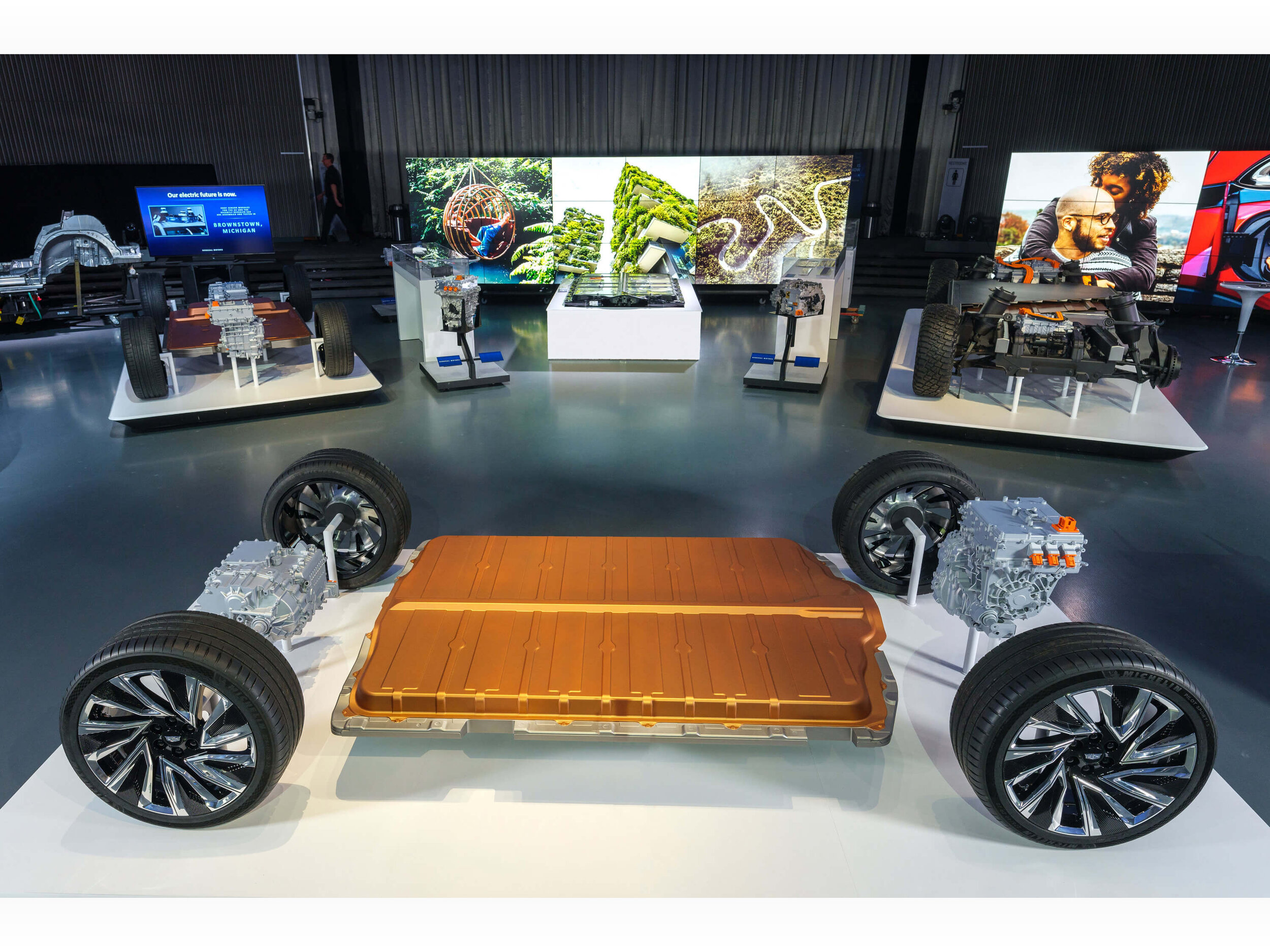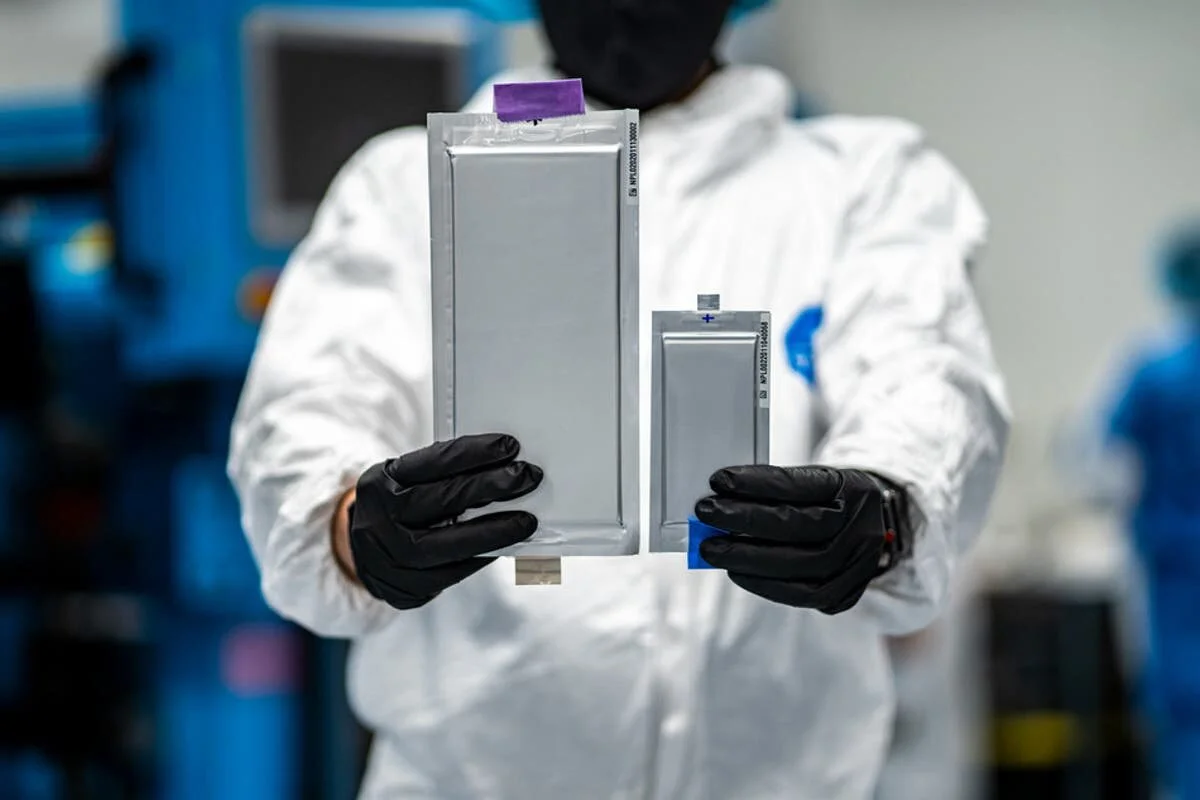
Lithium: Useful, Ubiquitous, Unethical
Aside from oxygen, lithium might just be the most essential chemical element in our daily lives, as it is responsible for powering everything from our smartphones, to our laptops, and even our cars.
In fact, lithum has become such an important part of modern life that global production has increased four-fold in the past decade, and is expected to triple over the next five years as the popularity of battery electric vehicles continues to grow.
However, its ubiquity hides the ecological harm that lithium extraction causes. Today we look at the consequences of the world’s growing hunger for lithium, the urgent need to recycle it, why EVs aren’t entirely to blame.
More, More, More
The first lithium-ion batteries went on sale just 30 years ago, in 1991, and have since enabled a global technological revolution that has touched everything from computers to toothbrushes.
The brilliance of lithium-ion batteries is their energy density – the maximum energy that a battery can hold for its volume. In short, they are relatively quick to charge and can hold a large capacity of energy to support our modern lifestyles.
Furthermore, the price of batteries has fallen by 97% since the inception of lithium-ion batteries, making them considerably more affordable for manufacturers and consumers alike.
However, there are serious ethical and ecological concerns about the production of lithium and our never-ending thirst for lithium-ion batteries.
In 2020, an estimated 82,000 metric tonnes of lithium were mined globally, up from just 28,100 tonnes in 2010.
As a consequence, lithium mines are getting bigger and going deeper, destroying precious natural land and farming land in the process.
In addition, the extraction process can be incredibly water-intensive, with miners in Chile using around 1 million litres of water to produce just 900kg of lithium, which has been linked with speeding up desertification around mining areas.
A large scar left on the Earth by the Chemetall Foote Lithium Operation in Clayton Valley, Nevada. Credit: Wikimedia Commons
Of course we should never overlook the human cost of lithium production, which has been linked to serious human rights abuses and the use of child labour – something that many battery manufacturers and corporations have been keen to shy away from.
EV Batteries
It is undoubted that the electric car revolution is sorely needed to tackle the Climate Crisis and reduce global emissions of harmful greenhouse gases. However, it is also undoubted that this revolution will also cause a significant rise in the demand for lithium, with considerable ecological consequences.
While some of these concerns may be addressed through the advent of solid-state batteries or other technological innovations, which will lessen the global demand for lithium, this is likely some way off.
And much of the anticipated three-fold increase in lithium demand by 2025 will come from the production of new EVs.
Solid State Batteries offer the opportunity to break free of lithium consumption, but are still some way off being affordable for mass adoption. Credit: Solid Power
However, there is comfort to be found in the growing recycling and reuse of electric car batteries – with the latter being particularly important.
With the majority of EV batteries being retired with around 80% of their capacity remaining, they can readily be used to store energy from renewable sources such as solar panels in homes and businesses and live long, useful second lives.
In fact, while this trend is still emerging, we can already see the effects of how readily EV batteries can be reused to dramatically extend their life expectancy.
A key indicator of this is that the price of used EV batteries is more than 60% higher than the price new batteries, according to Bloomberg – due to their value for energy storage after their useful life in an EV.
For those that can’t be reused, there is a burgeoning recycling industry for EV batteries which will recover useful materials, and it is anticipated that by 2025 around three-quarters of retired EV batteries will be reused or recycled.
While this won’t lessen the extraction of lithium in the short-term – and the ecological consequences of this should not be underestimated – it does demonstrate that the alarmism around the lithium demand for EV batteries should also be extended to other, more disposable products as well if we are to tackle the problem holistically.
“Only around 5% of the lithium-ion batteries used in the 1.5 billion new smartphones sold each year currently go on to be recycled”
Recycling Is Rare
A perfect case study is the smartphone.
While the life cycle of smartphones has been slowly increasing in the US and Europe, the average smartphone life expectancy in Europe is just 2.5 years, according to Consumentenbond, a Dutch non-profit consumer protection organisation – while it’s just a little over 2 years in the US, according to Kantar Worldpanel.
At this rate, the average person will consume around 35 smartphones in their lifetime, which is why the United Nations University has estimated that 49.8 million tonnes of e-waste were generated in 2018 alone.
That’s not to mention the impact of work phones, which tend to have considerably shorter lifespans, with companies typically changing them every 2.25-2.4 years.
An obvious solution to the increasing global demand for lithium is to recycle what we have already extracted, but this is incredibly rare at present.
Yet, only around 5% of the lithium-ion batteries used in the 1.5 billion new smartphones sold each year currently go on to be recycled.
In fact, almost 5 million smartphones are believed to have been discarded in Ireland alone, despite still being entirely usable.
A 2020 study across 27 countries found that a potential value of €1.9 billion in precious metals such as gold, silver, palladium, platinum and copper had been discarded – requiring a vast amount more extraction of these materials to produce the 1.5 billion new smartphones produced every year to satisfy our collective demand for the latest and greatest models.
Data from Apple demonstrates how little is being done by phone manufacturers to promote ethical design and encourage recycling. Credit: Compare and Recycle
While companies like Apple will tell you that they are stepping up to the challenge of recycling more of their devices, the truth is this is little more than greenwashing to make them appear more ethical than they are.
In 2018 Apple reportedly recycled 1.2 million iPhones, but sold 218 million – so less than 0.5% of their devices were actively recycled by the company
As such, we can see that there is a significant need for global regulation to ensure that any item powered by a lithium-ion battery has been designed to be disassembled at the end of its lifespan, so that useful materials can be recovered and recycled.
This does not lessen the need to quickly transition to more ethical battery solutions which do not cause the same level of ecological harm, but it instead shows that our lithium addiction is more widespread than we may realise.
Ethical product design is essential for the circular economy. Just a few years ago you could gain access to, and remove, smartphone batteries, but modern designs are hindering recycling efforts
We should maintain pressure on electric car manufacturers to ensure that they are using the most ethical and ‘green’ lithium possible, but we should also be holding smartphone, computer and consumer goods giants to the same standards.
The Solution
If you are rightly concerned about the rising demand for lithium, and the associated ecological implications of lithium, you’re probably wondering what can be done about it.
It is clear that while capitalism is the predominant global culture, the likes of Apple and Samsung are not going to slow down mobile phone production or the roll-out of needless annual updated models that are barely distinguishable from their predecessors.
Sadly the responsibility for ethical action lies with you, as it so often does.
The simplest option is to choose to consume less lithium – use your existing smartphone for longer, choose not to upgrade, take your laptop for a service or repair, rather than replacing it with a new one.
And if you do choose to get a new device, be sure to recycle the one old so that its useful materials can be reused – keeping the raw ores in the ground where they belong.
Beyond that, the usual advice applies; petition your politicians to mandate greater recycling and to put pressure on companies to improve their ethics and consumption, or simply tell a friend and share the knowledge contained in this article.
What To Read Next
Don’t Fall for ’10-Minute Charge’ EV Battery Myths
We have witnessed a considerable rise in the number of stories claiming that EV batteries which can be charged in 10 or 20 minutes are just on the horizon and will revolutionise electric car use. Today we examine these claims, and show why you shouldn’t fall for these stories… at least, not yet.
Why EV Battery Recycling Is Set To Take Off
Find out why nervousness about the EV battery life cycle is overlooking other opportunities, how new efficiencies are being found, and which emerging technologies may influence its future.







